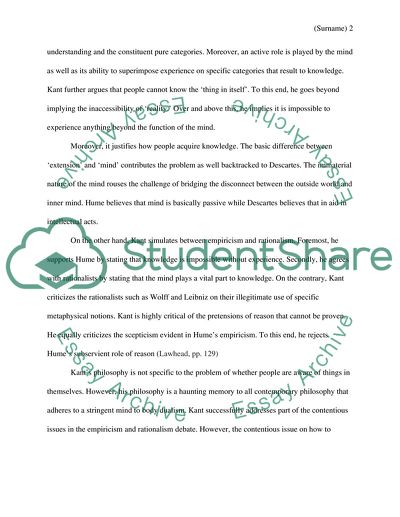Kant Essay Example | Topics and Well Written Essays - 500 words - 1. Retrieved from https://studentshare.org/miscellaneous/1615702-kant
Kant Essay Example | Topics and Well Written Essays - 500 Words - 1. https://studentshare.org/miscellaneous/1615702-kant.


